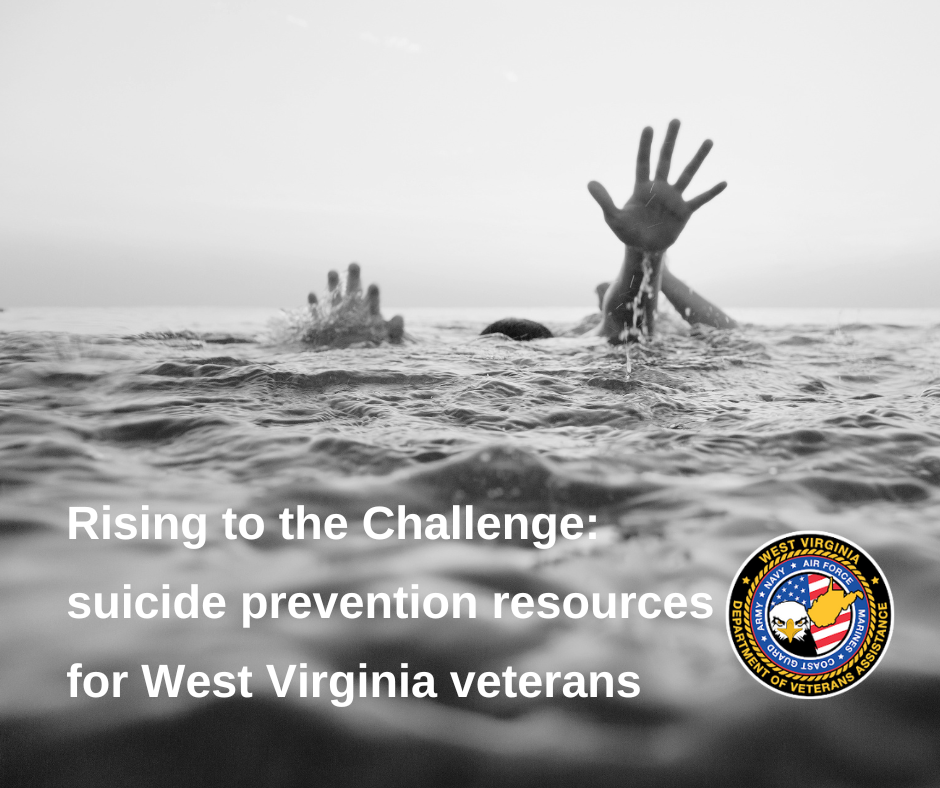

Even one person lost to suicide is one too many. And it’s a sobering fact that Veterans and Service Members in West Virginia are at significantly higher risk of dying by suicide than non-veterans. Every year we lose several dozen veterans, despite the many organizations, agencies, and people at work to prevent the crisis of suicide.
To provide more life-saving resources, the federal Department of Veterans Affairs and Substance Abuse and Mental health Services Administration launched the Governor’s Challenge to Prevent Suicide among Service Members, Veterans, and their Families (SMVF) in early 2019. They had a simple goal: bring together leaders from local, state, and federal government, nonprofit organizations, service providers, and communities to work as one to prevent suicide in veterans.
West Virginia has been an active participant in the Challenge since 2020.
Suicide is a complex issue with no single cause. Risk factors can include a prior suicide attempt and certain mental health conditions, including Post Traumatic Stress Disorder, depression, Substance Abuse Disorder, and many more.
High-stress life events can also lead to increased risk. Veterans are trained to handle many challenges, but no one is immune from life’s stresses and difficulties. The transition from military service to civilian life and other monumental life events like losing a job, divorce, or the death of a loved one, financial difficulty, housing or food insecurity, and others can cause increased stress.
If you are a Service Member or Veteran in crisis – Call the Crisis Line immediately at 988, then dial 1.
How You Can Help
You don’t need to be an expert to make a difference. All West Virginians have a role to play in preventing suicide among veterans and their families in our communities. Every person, system, and organization should ask themselves how they can help because together, we can prevent veteran suicide.
Right now, the Governor’s Challenge Program in West Virginia needs additional members willing to work toward the goal of eliminating veteran suicide within the state.
The Governor Challenge Program is looking for members with a background in mental or physical health and those active in community or veteran organizations.
If you are interested in becoming a member, contact one of the Governor’s Challenge co-leads below:
- Daryle Bayless – Communication Director, West Virginia Department of Veterans Assistance
- Elliott Birckhead, Deputy Commissioner, West Virginia Bureau of Behavioral Health
- Deanna Stump, Suicide Prevention Coordinator, VISN 5 federal Veterans Health Administration

